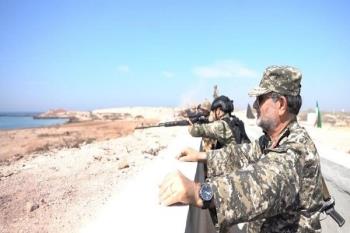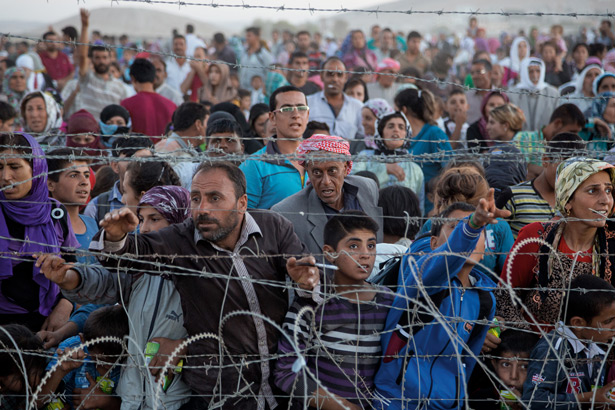Alwaght- Turkey is a nation which many of its regulations and civilizational structures, including the cultural and religious set-ups, as well as a large portion of its territory and geography are Asian. In the viewpoint of Europe, the country has many unsettled issues standing as hurdles in the way of its membership in the EU. Meanwhile, the internal factors are more effective than the external ones in creating and maintaining the problems.
One of these factors is the culture which according to the political scientist Samuel P. Huntington is barring Ankara from joining the EU. The same idea is shared by Kohl. The Christian Europe cannot allow a Muslim member even if the country’s government is secular. Concerning the Islamism in Turkey and its impacts on the country’s bid for EU membership, it should be said that it is facing a two-sided reality. On the one hand the Europeans are concerned that by Turkey joining the EU, the union’s Muslim population would see a rise. Consequently, its Christian identity would be overshadowed. On the other hand, the growth of moderate Islamism in Turkey, once Ankara obtains membership of the EU, would spur other Muslim states to take cue from Turkey.
It seems that the European leaders have reduced the degree of their emphasis on the Christian face of the EU as a result of the recent developments. In addition, the Kurdish issue has harmed, since the 1990s, the Turkish relations with the EU, creating a deep gap between the EU’s and Turkey’s views on the way of treating the Kurdish minority.
In the European Union’s point of view, the Kurdish issue should be settled through political ways and without use of military force and violence. However, Turkey views the case as a matter of terrorism, believing that it takes the military force to solve the Kurds’ case. In fact, the Turkish President Recep Tayyip Erdogan’s growing excesses in the recent years along with the tough treatment of the Kurds has questioned the Turkish qualification for joining the EU and its compliance to the democratic standards. Another interesting point is that the European leaders have added a new clause to the EU’s constitution, making it extraordinarily difficult for Ankara to join the EU.
Called double majority voting system, the new clause is apparently passed with the aim of holding back Turkey from achieving the EU membership. Turkey’s joining the EU would be tied to approval of the majority of the populations of the EU countries, according to the fresh EU’s constitution clause. But aside from the democratic and human rights sticking points, the most significant obstacle ahead of Turkey’s EU membership is the issue of Cyprus, a small island country which is divided in two Turkish and Greek parts. Turkey’s and European Union’s ties have experienced some troubles as the Europeans have favored having the Greek side of Cyprus in their union.
Generally, it can be said that the Turkish ties to the EU have always been a source of tensions inside the EU. Despite the fact that the two sides have begun discussing Turkey’s membership of the EU since 2005, they have made no remarkable progresses. But the European countries, specifically Germany, have been forced to cooperate with Turkey as thousands of displaced refugees, as a result of crisis in their countries, have started arriving in Europe this year.
As the massive refugee influxes are invading Europe, the European countries are deeply divided on the way of dealing with the crisis. The refugee crisis has emerged as a huge challenge for the green continent. Meanwhile, due to its geographical position and its proximity to Europe, Turkey has played an influential role in paving the way for immigration of waves of refugees into Europe. Over two million Iraqi and Syrian refugees have so far travelled to Turkey to find a passage out to Europe. But pressures originating from the refugees’ arrivals have made so much discontent in the European countries, pushing Turkey and the EU to agree on a joint plan of action concerning the refugees. According to this agreement, the EU has pledged to give Turkey €2bilion to help provide shelter for the refugees.
Additionally, EU is set to ease visa restrictions for 75 million Turkish citizens within the three upcoming years. In exchange for this huge privilege, Turkey has vowed to accept the deported refugees who illegally entered Europe, as Ankara is now become committed to closing its borders in the face of immigrants who are intending to travel to Europe through Turkey.
The Question that presents itself is that how this crisis would affect the EU and Turkey relations. It seems that the growing arrival of the Syrian refugees in the European countries has left its impacts on the Turkish-European ties.
In fact, the first aim Turkey eyed was to press the US politically and propagandistically to allow Ankara establish a buffer zone in northern Syria. The second objective was to get rid of a large number of the Syrian refugees moving into its soil. The last goal was to do away with thousands of Turkey-based terrorist fighters and to give them a new chance to live in the West.
But now the increasing number of the immigrations to Europe, which puts further economic pressures and security threats on the European countries, has made the opportunity ripened for Turkey to exploit the crisis for wresting more privileges from the EU and for reviving the Turkey EU membership talks. Accordingly, it is not by accident that the German Chancellor Angela Merkel during her visit to Turkey has vowed to reactivate talks about Turkey’s bid for joining the EU. But we should monitor the way Turkey would deal with the refugee crisis in the future. At the same time, it must be viewed that how much the European countries would bow to the Turkish demands.



























